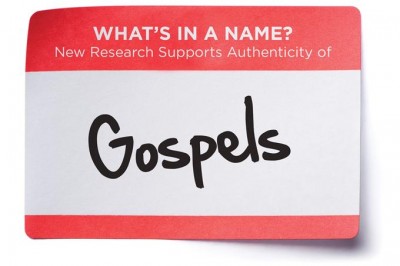
Esta entrada también está disponible en: Spanish
New Research Supports Authenticity of Gospels
It has become commonplace for skeptics to assert rather boldly that the Gospel records — the primary witness to the ministry, teaching, crucifixion and resurrection of Jesus — are unreliable texts written by anonymous figures in foreign lands many years after the events they recount. High-profile textual scholar Bart Ehrman, for example, believes that one ought not put any stock in the authenticity of Gospel accounts because they were written late, away from good sources, and derive mainly from legends that grew out of stories told in corruptible fashion around campfires for decades.
Of course, there is a tremendous amount of compelling evidence to the contrary — evidence that shows the Gospels were written early and accurately by people who were either eyewitnesses or had access to firsthand testimony. A good detective combing through the Gospels would be very impressed with the incidental details of the narratives and how they paint an accurate picture of life in first-century Palestine. There is a resounding ring of authenticity in terms of what the Gospels say about agriculture, architecture, botany, customs, economics, language, law, politics, religion, social strata, topography, weather and much more. It would be hard to get all of this right if the Gospel writers had little or no contact with the time and the lands about which they were writing.
Over the last decade, a new area of research has confirmed that the writers of the Gospels did indeed have the kind of intimate and detailed knowledge of life in that time and place. And this new research comes from an in-depth study of personal names.
In 2002 an Israeli scholar by the name of Tal Ilan did some seemingly boring work that has yielded some important dividends for New Testament authentication.


